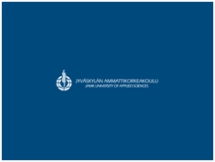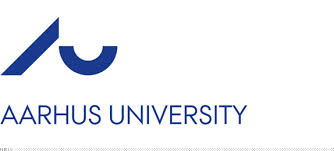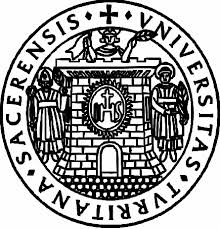| |

FISPPA
Department of Philosophy, Sociology, Education and Applied Psychology, University of Padova The Department brings together scholars from various fields with the aim of developing interdisciplinary analyses of human experience in social contexts. Research topics mainly cover inter-cultural problems, analysis of social, educational and psychological processes, and individual choices and practices in sociocultural and historical contexts, with due consideration of basic underlying values.
Recognising the importance of merging forms of knowledge, the Department values its disciplinary traditions, and promotes theoretical and empirical research spanning from individual to societal concerns. It also coordinates several degree courses, PhD programmes, specialised courses and masters.
|
| |
|
| |

CNAM
(Conservatoire National des Arts et Métiers – National Conservatory For Applied Technologies) Paris (France) is an institution of higher education and fundamental and applied research created in 1794. This multidisciplinary institution controls 150 campuses in France and overseas, in Africa, in Asia, and in America. CNAM trains executives or workers who wish to return to school and get training, qualifications or be professionalized.
INETOP Institut National d'Étude du Travail et d'Orientation Professionnelle –French Institute for the Study of Work and Career Counseling – was created in 1928. It is a department of CNAM.
INETOP Research Department - Equipe de Psychologie de l’Orientation (Vocational Psychology Research Team) - is a part of the Centre de Recherche sur le Travail et le Développement (CRTD) (EA 4132) (Research Centre on Work and Development).
The activities of INETOP are fourfold:
Education and training,
Research,
Resource centre
Publication
INETOP offers both initial and continuing education. Inetop offers Three master’s degrees:
- Psychology of Career Development (Vocational Master)
- Psychology of Work and Transition (Research Master)
(These two masters have a first common year)
- State Diploma of School and Career Counselor and Psychologist (DECOP)
A doctoral degree
-Research is conducted notably in the following areas:
-Lifelong identity construction, plans and transitions;
-Lifelong acquisition and development of competencies;
-Gender differences in schools and at work and their reductions;
-Lifelong personal and career development interventions (education, counselling, dialogues);
-Tools and assessment methods for personal and career counseling or education.
Inetop has a Resource centre:
- A library of 26,000 works.
- A collection of over 1,300 tests and methods used in career development interventions.
Publication. L’Orientation Scolaire et Professionnelle is one of the oldest scientific journal in the world in its field. Created in 1928, it publishes four issues a year (about 30 papers).
|
| |
|
| |

JAMK
University of Applied Sciences, Finland is an international higher education institution with expertise in 8 different fields of study. We are your global partner whether you want to develop individuals in your organization or an entire education system. Further, JAMK is an excellent partner in academic staff and student mobility.
JAMK's Teacher Education College provides teacher education programs, continuing education courses and services as well as research, development and innovation activities. In our the post-degree programs (teacher education, career counsellor education, special needs education) nearly 400 students graduates every year. We have participated in the development of the activities of educational institutions both in Finland and in various other parts of the world.
|
| |
|
| |

Department of Education, Aarhus University
The Department of Education (DPU) is the hub of education and pedagogic research in Denmark.
The department is currently working to implement the decisions made in connection with the academic development process at Aarhus University, which made the following comments about the Department of Education (DPU):
"It was key to the decision to have three institutes and one centre based on primary focus areas that a significant proportion of the courses and research at DPU has a sector-specific character with a number of clear receivers and external interested parties, which demands a clear organisational contact interface.
Furthermore, the former DPU already has an interdisciplinary organisation with research and courses across disciplines and existing institutes, prompting a continued organisation of the DPU as a cohesive unit.
In order to strengthen the internal openness and flexibility, the existing three institutes and the Centre for Primary School Research will be combined into one institute, called: the 'Department of Education (DPU)'. The new department will be able to carry on DPU's brand in the areas of research and knowledge exchange, while also providing a strong framework for new and future courses within the department and across primary areas.
A future strategy process is intended to help strengthen the DPU's profile as Denmark's hub for education and pedagogic research, and for courses particularly in the area of pre-schooling, primary school and lifelong learning." The Academic Development Process, Aarhus University.
|
| |

The University Center for Services and Research on Disability, Rehabilitation and Inclusion was created by different departments and services of the University of Padova with the purpose of facilitating, promoting and coordinating supports for the full participation of disabled students to university life and, afterwards, for their work inclusion. In order to do this, research studies are also promoted with national and international researchers, institutions and associations interested in the reduction, prevention and rehabilitation of impairment, disability and handicap. Several initiatives are undertaken in order to disseminate results of research studies including post graduate courses, conferences and workshops.
|
| |
|
| |

In line with experience gained in academic settings Europe and North America, the Department of Political Sciences, Communication Sciences and Information Engineering aims to encourage and develop new experiences of research and higher education in the field of complex systems. The paradigm of complexity has in fact established, both in the field of applied sciences than in the social sciences, a new perspective to deal with the problems of knowledge and training skills between different disciplinary approaches. It served to overcome the traditional boundaries between disciplines and pursue new avenues for theoretical and methodological analysis of the properties of complex structures, not least by using the resources offered by new technologies. Compared to this perspective, we can recognize multiple layers that bind the social sciences and computer engineering.
A methodological level, which sees expand the ability to share the same tools and approaches to research in an interdisciplinary perspective. Think of simulation approaches for the design and governance, or those for the analysis of so-called Multi-Agent Systems (MAS), analytical models and predictive fundamental to interpret, design and govern complex systems. It is relevant, from a methodological point of view, the development of software and hardware to analyze multimodal complex phenomena; they are useful tools to stress the limits of knowledge in an interdisciplinary framework that allows new systemic analysis perspectives to study from local to global levels.
An ontological level, which refers to the fact that those who were studied in the social sciences, in the positivist tradition, such as bodies and, later on, as consistent and ordered aggregates (organizations, institutions or jurisdictions), are actually complex systems (so-called abstract or expert systems). This links to historical processes such as the crisis of the nation state, the tendency to "liquidity" of social relations, the increased reflexivity of social systems (knowledge and the production of meaning as constitutive elements of systemic properties). In addition, it is now recognized the role of information technology and communication (ITC) in determining the evolution of social relationships and the human condition. In this context, information engineering and social sciences collaborate to introduce new technologies in different human contexts, and technology contributes to determinate new application at the social level. We are assisting a co-evolution of technology and social systems.
|
| |
|
| |

Heidelberg University, Institute of Educational Science
Heidelberg University, Institute of Educational Science, Research Group “Further Education and Counselling”. The research group “Further Education and Counselling” is a work unit within the Institute of Educational Science which is part of the Faculty of Behavioural and Cultural Studies at the Heidelberg University.
Head of the Institute as well as of the work unit “Further Education and Counselling” is Prof. Dr. Christiane Schiersmann. Ongoing practical and research orientated projects of the research group “Further Education and Counselling”:
»Education and change processes in the society
»Counselling in the field of education, vocation and employment
» Counselling and human resource development in SME
»Professionalization of the field of guidance/counselling, especially quality development and competence development
»Learning and counselling in combination with new media
» Further Education and age-based career development within the life-course.
Since 2006 the Heidelberg University is running coordinated by our Institut the multi-disziplinary Master study program “Career counselling and organizational development”. Several PhD are supervised by Prof. Dr. Christiane Schiersmann within this context. Our vision for the lifelong guidance and on a broader view on lifelong learning is to develop evidence based practise and policy making. This is not reachable at a single institution nor in a single country. Networking and cooperation are needed to make progress to reach this vision. Due to this our team is involved in many different national and international context, e.g. the NICE Network, ESVDC, IAEVG, nfb, EDP and others.
Links (internal):
Institute
http://www.ibw.uni-heidelberg.de
University
http://www.uni-heidelberg.de/index_e.html
Study Program Counselling & Organizational Development http://www.beratungswissenschaft.de
NICE Network: http://www.nice-network.de
Links (external):
National Guidance Forum (nfb)
http://www.forum-beratung.de/english/index.html
National Quality Initiative (bequ) http://www.beratungsqualitaet.net/english/index.html |
| |
|
| |

The Institute of Psychology of the University of Lausanne was founded in 1969 by Professor Jean-Blaise Dupont (1926-2011) after negotiation with the University of Geneva, and among others Prof. Jean Piaget (1896-1980). Initially, the Institute was called Institute of Applied Psychology (IPA) and its research activities focused on vocational psychology. The IPA was in charge of the training of the future vocational and career counselors for the French-speaking part of Switzerland (and offered only a second cycle license that corresponds to a MSc degree). In 1972, a first cycle (actually a BSc) in psychology was also offered. After this first cycle (BSc) students who did not want to study vocational and career counseling had to continue their studies in another University such as the University of Geneva that offered a studies in the field among others of clinical psychology. Only in the early eighties, a second cycle (MSc) in general psychology license was also offered. Over the years and following of the Bologna reform, the Institute has growing up (in number of teachers and students) and offers now a curricula in clinical psychology and psychopathology, in child and adolescent psychology, health psychology, social psychology, and, of course, in vocational and career counseling. The Institute is currently composed of about 120 co-workers including 25 Professors or teachers, and over 1200 students. |
| |
|
| |

University of Lower Silesia
Founded in 1997, University of Lower Silesia (ULS),located in Wroclaw, Poland, has established a distinct identity as a private institution of higher learning that promotes novel approaches to learning and forges research links on the national and international level. In addition to high-quality students, the school has attracted accomplished academic researchers and professors of education and the social sciences who have helped build the first-rate academic reputation of the school. ULS currently offers degree programs in education, special-needs education, international relations, journalism, national security, philosophy, cultural studies and cultural anthropology or technical science. It also offers full program for doctoral students (4 years) in educational studies as well as cognition and communication studies; see: http://www.dladoktoranta.dsw.edu.pl/
|